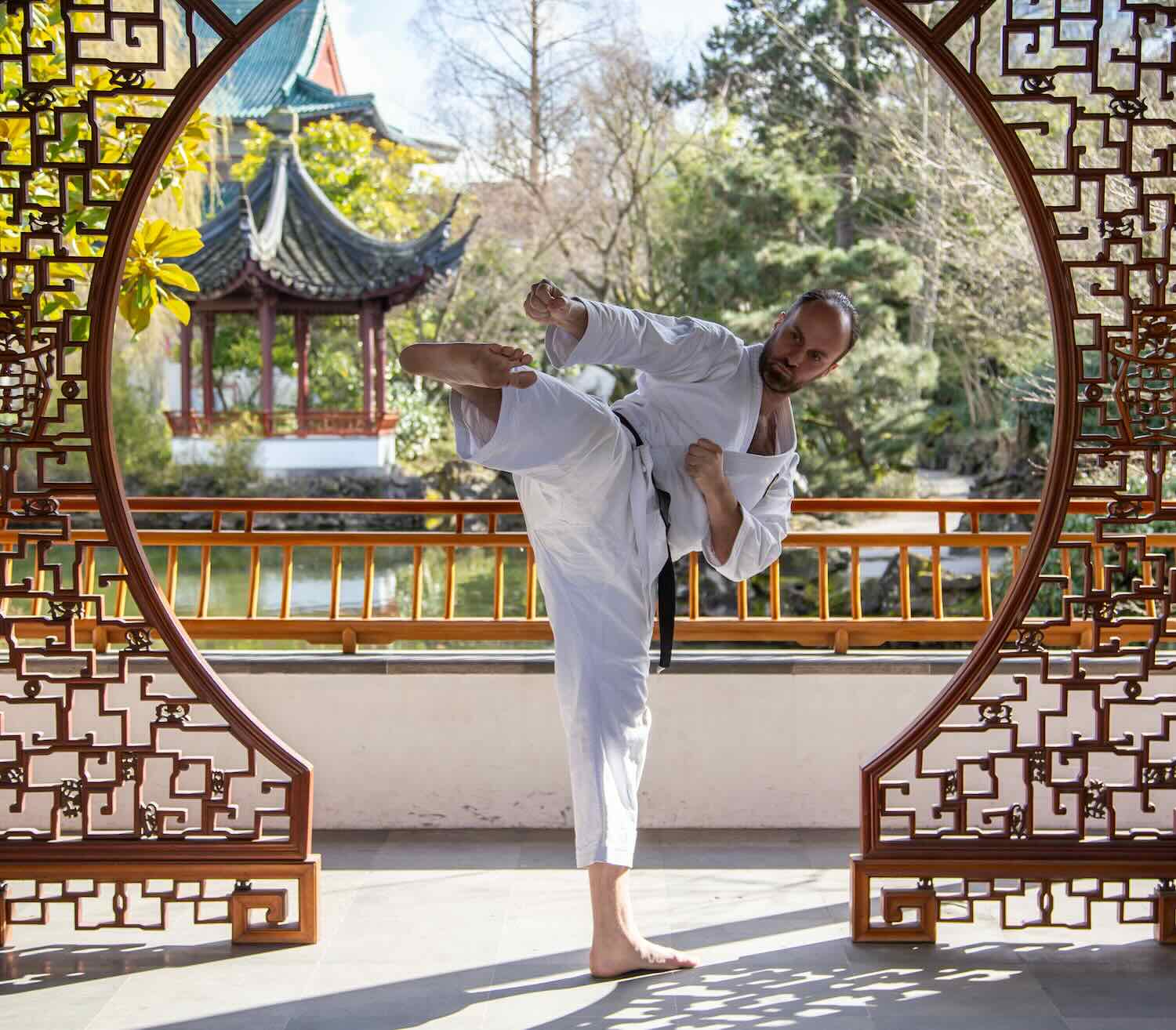Here in the West, besides the occasional reference to Cobra Kai, karate in popular culture doesn’t hold a candle to the excitement of the latest UFC or heavy-weight boxing match.
In this age of live, fast-paced combat sports, where tradition seems stuffy and out of place, is karate a relic of days gone by? Is karate dead in the West?
Let’s see what Google has to say…

Now let’s take a look at the Google Trends of the last ten years to see how searches for karate have fared against other sports.

Karate and mixed martial arts are neck-and-neck at a glance, with Brazilian jiu-jitsu falling consistently below both. Boxing is king when it comes to relative search frequency over the last ten years.
Interestingly, of the four sports, searches on karate are proportionally highest in Egypt.
But even though the karate search trend has been highest in Egypt over the last ten years, it had one peak in 2014, and before and after that, has been relatively low.
In Canada, the relative popularity of karate in Google Trends looks like this:

The numbers are similar for the United States, Mexico and the United Kingdom, with Western Europe being slightly higher.
At a glance, karate’s popularity is, at best, comparable to Brazilian jiu-jitsu and mixed martial arts with boxing a clear overall winner.
Karate in the 2020 Tokyo Olympics
Can karate be dead if it made it into the Olympics?
Um… yeah, the thing is, it already got itself kicked OUT of the Olympics. It was dropped from the 2024 Paris Games because of its lack of universal appeal, and you won’t see karate at the Los Angeles 2028 Olympics either.
You see, while the moms of the karate generation were busy sending their bullied kids to their local karate dojo to get Mr. Miyagi’d, adult males became increasingly inspired by mixed martial arts, boxing and Brazilian jiu-jitsu.
And who can blame them? As far as the edge-of-your-seat excitement factor goes, those sports trump karate.
But where karate lacks in excitement, it excels in other areas that make it a timeless art.
Karate’s Place in a Distracted World
How many adults do you know who lack basic social skills, like holding casual conversations, talking on the phone with strangers, making eye contact, knowing how to handle criticism, and handling minor failures with grace?
How many times do you see someone whip out their phone to avoid one second of awkward silence or boredom?
Karate is one of the rare sports that incorporates patience, loyalty, humility, honor, gratitude, and compassion as part of its core teachings, and in an explicit way.
Entering and exiting a dojo floor is always initiated with a bow to show respect to the dojo, the sensei, and the lineage.
There is a hierarchy in the dojo based on belt ranking and age. However, regardless of age, senior students are expected to mentor junior students. In fact, all students are encouraged to be ready and willing to pitch in.
Karate isn’t really a drop-in sport. If you join a dojo, you’re expected to attend class regularly.
Gichin Funakoshi, the founder of Shotokan karate and known as the father of modern karate, summed up the spirit of karate best when he said:
“The ultimate aim of Karate lies not in victory or defeat, but in the perfection of the character of its participants.”
Gichin Funakoshi
Karate may never be as popular as some modern martial arts or combat sports, but it’s not in direct competition with those sports either.
After all, karate’s priority is not to create the ultimate fighting machine.
“There is a difference between a fighter and a martial artist. A fighter is training for a purpose: He has a fight. I’m a martial artist. I don’t train for a fight. I train for myself. I’m training all the time. My goal is perfection. But I will never reach perfection.”
Georges St-Pierre, 3X former UFC Champion
In summary, karate’s popularity may be waning in Google search trends, but it has a 1,400+ year-long tradition that has overcome more adversity throughout the centuries than boxing or any other trending sports will likely ever seen in its lifetime.
While there is overlap between karate and other martial arts as well as with sports like boxing, people are attracted to karate because, despite appearances, karate offers peace and equanimity which are increasingly in short supply.
In other words, as we continue to lose our minds with distraction, karate’s appeal will become en vogue once again. Long live karate!










